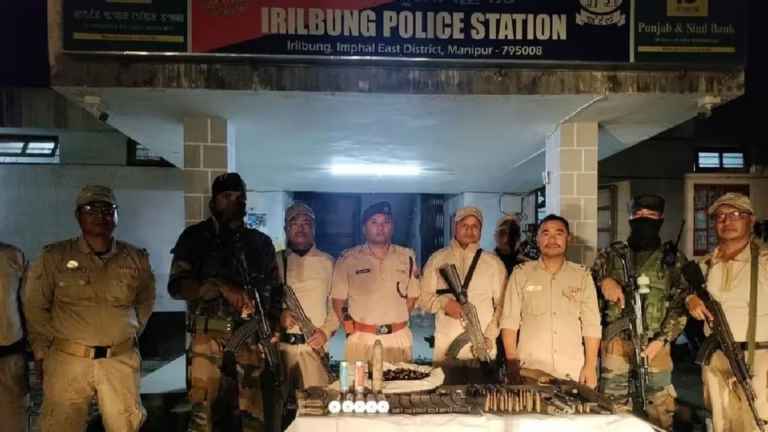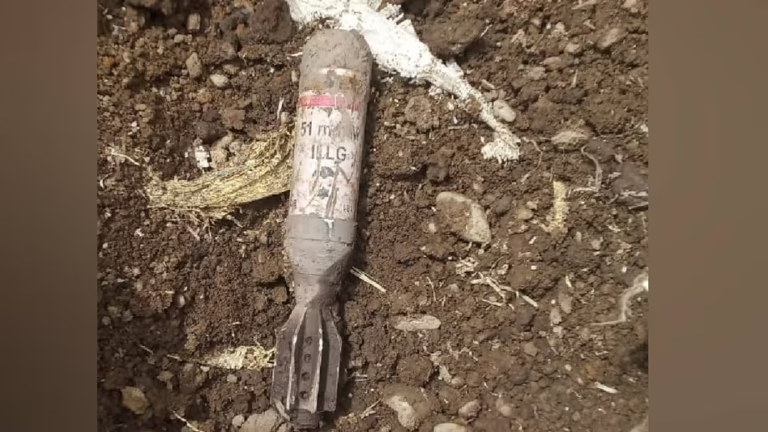Manipur Police Arrests KCP Cadre in Imphal
Summary
Manipur Police successfully arrested a cadre of the proscribed insurgent group, Kangleipak Communist Party (KCP), in Imphal on October 11, 2024. The arrest marks a significant step in the state’s ongoing efforts to tackle insurgency and bring peace to the region. The police operation was carried out in Imphal West District, and the apprehended individual is believed to have been involved in several insurgent activities across the state. This operation reflects the state police’s commitment to maintaining law and order and disrupting insurgent networks in Manipur.
The Fight Against Insurgency in Manipur: A Continuing Struggle
Insurgency has long been a major challenge in the Northeastern state of Manipur, particularly due to the presence of numerous armed groups like the Kangleipak Communist Party (KCP). These groups have historically sought to assert their dominance over the state, often through violent means, disrupting the peaceful coexistence of Manipur’s diverse communities. The recent arrest of a KCP cadre in Imphal highlights the ongoing fight against insurgency in the region and the concerted efforts of law enforcement agencies to curb such activities.
Who Are the Kangleipak Communist Party (KCP)?
To fully understand the significance of this arrest, we must first examine the Kangleipak Communist Party (KCP). The KCP is one of several insurgent groups that have been active in Manipur for decades. Formed in 1980, the KCP’s stated objective is the creation of an independent socialist state of Kangleipak, which is the traditional name for the kingdom of Manipur. The group, like many other insurgent factions in the region, has engaged in extortion, bombings, and targeted assassinations to further its cause.
Though the KCP has splintered into various factions over the years, the core ideology remains the same. The group seeks to resist Indian rule in the region, pushing for autonomy or even secession. These insurgent activities, combined with the activities of other groups such as the United National Liberation Front (UNLF) and People’s Liberation Army (PLA), have created a volatile security environment in the state.
Details of the Arrest
The recent arrest of the KCP cadre took place in Imphal West District, a region that has often been a hotspot for insurgent activities. According to police sources, the individual was involved in orchestrating various acts of violence in the state, including extortion and the recruitment of young people into the insurgency.
The arrest was part of a larger operation by Manipur Police to crack down on insurgent networks. Over the past few months, the police and security forces have been intensifying their efforts to dismantle these groups and arrest key figures within their ranks. The goal is not only to restore peace in the region but also to ensure that these insurgent factions do not gain further ground in the state.
Impact of the Arrest on Manipur’s Security Situation
The arrest of a KCP cadre is a significant development in the fight against insurgency, but it is also part of a much larger picture. For years, insurgent groups like the KCP have held sway in certain areas of Manipur, creating an atmosphere of fear and uncertainty. The state’s complex socio-political landscape, combined with economic underdevelopment and geographic isolation, has allowed these groups to thrive.
However, in recent years, the government has stepped up its efforts to quell insurgency and restore peace. This has involved a multi-pronged approach, combining military action with socio-economic development programs aimed at addressing the root causes of insurgency. The arrest of the KCP cadre can be seen as one of many steps toward restoring law and order in Manipur.
The Role of Law Enforcement in Counter-Insurgency
The Manipur Police and other law enforcement agencies play a crucial role in maintaining peace and security in the state. Over the years, these agencies have developed a deep understanding of the region’s unique challenges and have adapted their strategies accordingly. The recent arrest was the result of meticulous planning and intelligence gathering, highlighting the professionalism of Manipur’s police force.
Manipur Police have increasingly focused on breaking the back of insurgent networks by targeting their leadership and disrupting their recruitment efforts. In addition to arrests, the police have also been working to cut off the financial lifelines of these groups, which often depend on extortion, smuggling, and illegal taxation to fund their operations.
Challenges in Tackling Insurgency
Despite the success of recent operations, the fight against insurgency in Manipur is far from over. Several challenges continue to impede efforts to bring lasting peace to the state:
- Geographical Barriers: Manipur’s rugged terrain, which includes hills, forests, and proximity to the porous Indo-Myanmar border, makes it difficult for security forces to operate effectively. Insurgents often take advantage of the terrain to evade capture, slipping across the border when pursued by Indian forces.
- Community Support for Insurgents: In some cases, insurgent groups still enjoy a degree of local support, particularly in areas where the government’s presence is weak. Economic underdevelopment and lack of access to basic services in certain parts of the state create fertile ground for insurgents to recruit disillusioned youth.
- Cross-Border Collaboration: Insurgency in Manipur is not confined to the state’s borders. Many insurgent groups operate across the Indo-Myanmar border, where they have bases and receive support. The porous border between the two countries allows for easy movement of people and weapons, complicating efforts to fully eradicate these groups.
Government Initiatives to Curb Insurgency
The Indian government, both at the central and state levels, has introduced several initiatives to address the issue of insurgency in Manipur. These include:
- Counter-Insurgency Operations: The state police, in collaboration with the Indian Army and paramilitary forces, have conducted numerous operations aimed at neutralizing insurgent threats. These operations have led to the arrest of key insurgent figures and the recovery of arms and ammunition.
- Socio-Economic Development: One of the long-term strategies to address insurgency is through development programs that aim to uplift the marginalized communities in Manipur. The government has introduced several infrastructure projects, educational initiatives, and employment schemes to address the root causes of insurgency, such as poverty and unemployment.
- Peace Talks: The government has also explored the possibility of peace talks with insurgent groups to bring an end to the conflict. In recent years, several factions have come forward for dialogue, signaling a willingness to engage in the political process.
A Step Forward but Challenges Remain
While the arrest of a KCP cadre is a positive development, it is only one step in the long road toward peace in Manipur. The insurgency has been a part of the state’s fabric for decades, and addressing it requires not just military action but also meaningful socio-political reforms. The central and state governments must continue to engage with local communities, provide economic opportunities, and ensure that the rule of law is upheld across the state.
At the same time, there must be a concerted effort to strengthen border security, particularly along the Indo-Myanmar border, to prevent the insurgents from using it as a safe haven. Only by tackling these issues comprehensively can the state hope to achieve lasting peace and stability.
FAQs
- Who are the Kangleipak Communist Party (KCP)? The Kangleipak Communist Party (KCP) is an insurgent group in Manipur that seeks to establish an independent socialist state called Kangleipak. They have been involved in various violent activities, including extortion and bombings.
- What was the significance of the recent arrest of a KCP cadre in Imphal? The arrest is a significant step in the government’s efforts to combat insurgency in Manipur and dismantle the operations of the KCP.
- What challenges do security forces face in fighting insurgency in Manipur? Security forces face challenges such as difficult terrain, local support for insurgents, and cross-border insurgent activities along the Indo-Myanmar border.
- How is the government addressing the root causes of insurgency? The government is addressing the root causes through socio-economic development initiatives, peace talks, and increased law enforcement efforts.
- What role does the Indo-Myanmar border play in the insurgency? The porous Indo-Myanmar border allows insurgent groups to operate across borders, making it harder for security forces to fully neutralize them.



